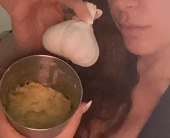








M Troyka wrote:Look at China today.. practically over a billion people just in one country, and yet their standard of living has been steadily increasing since they decided to let in capitalists and begin moving from communism to business.
It can be done!




Max Kennedy wrote:
M Troyka wrote:Look at China today.. practically over a billion people just in one country, and yet their standard of living has been steadily increasing since they decided to let in capitalists and begin moving from communism to business.
I think this is probably a bad example. Because their resources and labour have been vastly undervalued the rest of the world has been rushing to send money to China. China goes so far as to deliberately undervalue it's currency on the global stage so they remain attractive as a place to buy from. This is just a variant of the US printing money to support the banks during the housing collapse and is just as unsustainable. Their increase in living conditions also comes at the expense of other nations since they aren't even close to being self sufficient in food.
Paul C. your definition of sustainable "however unpleasantly" is subsistance. A sustainable good quality of life requires fewer people. As technologies evolve that population level will change or the quality of life will improve. However at some population level too many resources will be used and a population crash will result as evidenced by the Maya and Easter Islanders. Thus the idea that we are "always sustainable" is an error with many historical precedents.
 . Real standards of living in China have definitely improved since they became industrial, though, although they certainly aren't going to be the banking capital of the world any time soon (as much as they might prefer it) or the nicest place to live. Also, not every country has land that is well suited to agriculture; Hong Kong, for example, is built on a barren rock. Estonia, while they have been extremely successful in building wealth, is also dependent on their manufacturing industry. Self-sufficiency in food is not required as long as the price of food is allowed to freely float. Neither is really the case in China.
. Real standards of living in China have definitely improved since they became industrial, though, although they certainly aren't going to be the banking capital of the world any time soon (as much as they might prefer it) or the nicest place to live. Also, not every country has land that is well suited to agriculture; Hong Kong, for example, is built on a barren rock. Estonia, while they have been extremely successful in building wealth, is also dependent on their manufacturing industry. Self-sufficiency in food is not required as long as the price of food is allowed to freely float. Neither is really the case in China.




Max Kennedy wrote:Paul C. your definition of sustainable "however unpleasantly" is subsistance. A sustainable good quality of life requires fewer people. As technologies evolve that population level will change or the quality of life will improve. However at some population level too many resources will be used and a population crash will result as evidenced by the Maya and Easter Islanders. Thus the idea that we are "always sustainable" is an error with many historical precedents.

Paul Cereghino- Ecosystem Guild
Maritime Temperate Coniferous Rainforest - Mild Wet Winter, Dry Summer




I am the first generation of my family to grow up on the grid eating out of the super market. I hope to be the last.




It can be done!




www.facebook.com/SoulOfTheForest




www.facebook.com/SoulOfTheForest





paul wheaton wrote:The word sustainable is used a lot these days, but it doesn't really fit what I want to do.
In the broad spectrum of all the things that can happen, there is:
1) fast death
10) medium speed death
100) slow death
1000) death that is really, really slow
1416) sustainable - barely avoiding death, but no more
2000) _________
10,000) _______
100,000) ________
1,000,000) ________
I would like to find the words for the blanks.
Growth? Prosperity?
Any ideas? Surely there are some excellent words and they just aren't popping into my head right now.





- Tim's Homestead Journal - Purchase a copy of Building a Better World in Your Backyard - Purchase 6 Decks of Permaculture Cards -
- Purchase 12x Decks of Permaculture Cards - Purchase a copy of the SKIP Book - Purchase 12x copies of Building a Better World in your Backyard
 1
1




Timothy Norton wrote:2000- Growing
10,000- Flourishing
100,000- Multiplying
1,000,000- Fertile

|
The only thing that kept the leeches off of me was this tiny ad:
Support permies and give beautiful gifts to gardeners: permaculture playing cards.
https://gardener-gift.com/
|





